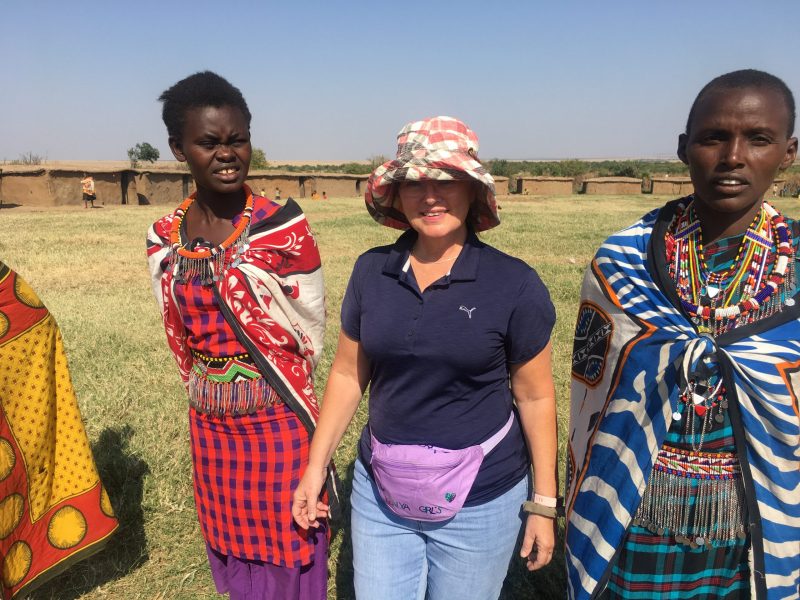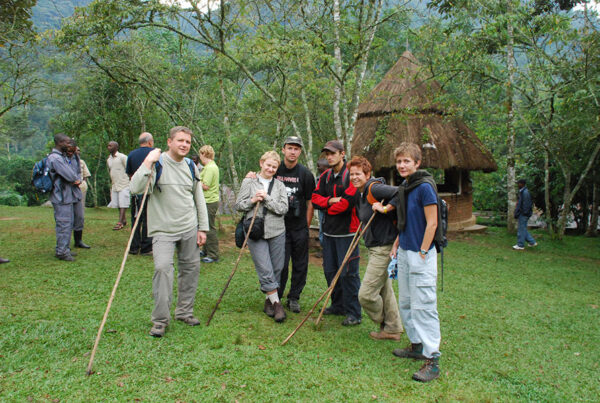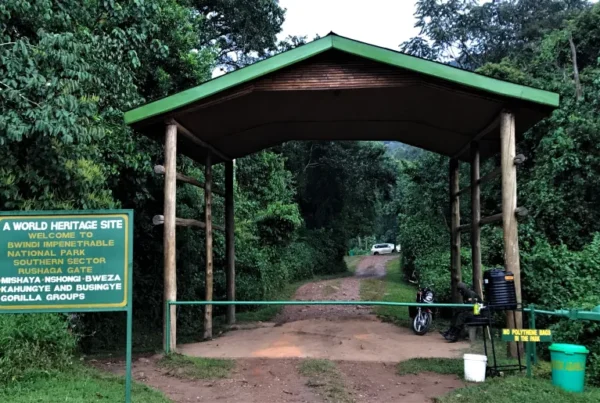Walking with the Locals: Community Tours in Africa That Redefine Connection
To walk through an African village is to step into a living story — one that unfolds not through monuments or museums, but through people. The land hums with rhythm; the air carries the scent of firewood and earth; and every face holds a tale of endurance, laughter, and belonging. It is here, among the dusty pathways and vibrant smiles, that travelers encounter the real Africa — not from the window of a safari vehicle, but side by side with those who call it home.
Walking with the locals is more than a journey; it is a dialogue between cultures, a bridge between worlds. It invites travelers to slow down, to listen, and to connect beyond the surface. While safaris capture the wilderness of Africa, community tours reveal its humanity. They allow one to witness not just wildlife but life itself — in its raw, humble, and deeply meaningful form.
Through community tours in Africa, visitors become participants rather than spectators. They walk through fields and markets, share meals, join dances, and learn traditions that have been preserved for centuries. Every encounter becomes an exchange — a lesson in simplicity, resilience, and unity.
The Meaning of Community Tours in Africa
The essence of a community tour lies in its authenticity. These are not orchestrated performances but genuine invitations into daily life. They are experiences rooted in mutual respect — opportunities for travelers to engage with African communities in ways that uplift, educate, and inspire.
Unlike conventional tourism, community tours prioritize human connection. They shift focus from landscapes to livelihoods, from destinations to stories. Travelers are welcomed into homes, introduced to artisans, and guided through the everyday rhythms of rural life. They learn how communities farm, cook, celebrate, and sustain themselves, discovering that Africa’s strength lies not in spectacle, but in spirit.
Each region tells its own story. From the Maasai villages of Kenya and Tanzania to the Batwa and Bakiga communities in Uganda, from the Zulu homesteads of South Africa to the Himba settlements of Namibia — these experiences vary, yet all share the same heartbeat: togetherness.
The goal is not to watch but to walk — to participate in a shared journey of understanding. In doing so, travelers see Africa not through the lens of exoticism, but as a mirror of humanity itself.
The Daily Life Experience
In the villages and communities that dot the African landscape, life moves in harmony with nature. Dawn breaks gently, casting golden light over grass-thatched homes. The air carries the sounds of roosters crowing, goats bleating, and children laughing. Women begin their morning tasks — grinding grains, fetching water, or tending gardens — while men prepare for the fields or carpentry work.
The day unfolds with an unhurried grace. Every task is shared, every moment purposeful. Food is prepared slowly, conversations are plentiful, and time is measured not by hours but by the rhythm of life. For travelers walking alongside the locals, it becomes clear that life here is not about rushing forward but about being present — deeply, fully, and gratefully.
To fetch water with a village mother, to grind millet with her daughters, or to share stories with elders beneath the shade of a tree — these are moments that transcend tourism. They reveal a philosophy of living anchored in community, patience, and gratitude.
When the sun sets, the village transforms. Fires are lit, songs rise, and laughter fills the night air. Children gather around their grandparents to listen to tales that have shaped generations. Visitors often find themselves drawn into the circle, partaking in the universal ritual of storytelling that binds humanity together.
Traditions and the Fabric of African Identity
Culture in Africa is not an artifact of the past; it is a living, breathing force that shapes every aspect of daily life. Through community tours, travelers gain rare access to this cultural continuum — a chance to witness traditions that have been preserved and practiced for centuries.
Births, weddings, harvests, and initiations are marked by elaborate rituals that embody gratitude, unity, and spirituality. The beating of drums, the chanting of songs, and the vibrant dances all tell stories — of creation, of triumph, of resilience. Each movement, each melody carries meaning.
These traditions are not performed for entertainment but lived with reverence. They are the heartbeat of community identity. For travelers, to witness or even participate in them is to glimpse the sacredness of African life — where the spiritual and physical worlds intertwine seamlessly.
Among the most powerful experiences are those that involve storytelling. Elders speak of ancestors, of myths and moral lessons that guide behavior and belief. The act of listening itself becomes transformative — a reminder that wisdom, once shared through words and rhythm, remains timeless.
 The Women Who Hold It All Together
The Women Who Hold It All Together
African communities are sustained by the quiet yet unyielding strength of women. They are farmers, mothers, teachers, and creators — the lifeblood of their families and the keepers of cultural continuity.
From sunrise to nightfall, women embody resilience. They tend crops, raise children, manage households, and still find time to craft beauty with their hands — weaving baskets, creating pottery, or designing beadwork that tells ancestral stories. Their artistry and industry not only sustain families but also strengthen local economies.
Many community tours highlight women-led cooperatives and social enterprises. Travelers meet artisans whose work supports education for their children or funds healthcare for their neighbors. These encounters go beyond admiration; they inspire respect and awareness of how empowerment flows naturally when opportunity meets determination.
To walk beside these women, to hear their laughter and see their skill, is to understand that Africa’s greatest resource is not its land or wildlife, but its people — especially its women, who carry the continent forward with dignity and grace.
The Power of Ubuntu: Hospitality and Human Connection
Perhaps the most striking feature of community tours in Africa is the genuine warmth of the welcome. The African philosophy of Ubuntu — “I am because we are” — defines every interaction. Guests are not treated as outsiders; they are embraced as family.
Upon arrival, visitors are often greeted with song and dance, a joyful ritual that breaks barriers and sets the tone for connection. Meals are shared communally, and conversations flow freely despite language differences. There is no pretense, no distance — only a deep sense of belonging.
In rural Africa, generosity is woven into the social fabric. Food, no matter how simple, is shared with pride. A bowl of maize porridge, a serving of beans, or a mug of fresh milk becomes more than sustenance — it becomes a gesture of friendship.
Such hospitality humbles even the most seasoned traveler. It reminds us that kindness is not born of abundance but of empathy. It is in these exchanges — a shared meal, a laugh, a story — that the spirit of Africa reveals itself most clearly.
Music, Dance, and Celebration
Music is the heartbeat of Africa, and in its communities, rhythm is life. To hear the drums echo across the fields, to feel the vibrations beneath your feet, is to understand the continent’s spirit in its purest form.
In African villages, music and dance are not reserved for special occasions; they are woven into daily existence. Work songs accompany farming, lullabies soothe children to sleep, and ceremonial rhythms mark the milestones of life. The drumbeat is both a call and a language — it summons, celebrates, and heals.
Travelers who join these musical gatherings often find themselves transformed. Dancing under starlit skies, surrounded by people who move as one, they experience something beyond performance — a collective energy that transcends culture and language.
It is said that Africa does not sing to life but through it, and nowhere is this truer than in its villages. Each note, each sway, is a declaration of joy and survival, a testament to humanity’s shared rhythm.
Art, Craft, and Storytelling
African creativity finds its truest expression in its villages. Art is not a pastime here; it is identity made visible. Every carving, painting, and textile is a reflection of belief, history, and hope.
Visitors who embark on community tours often witness artisans at work — shaping clay into pots, weaving baskets from reeds, or threading beads into intricate patterns. Each creation carries significance. The colors tell stories, the designs encode wisdom, and the craftsmanship itself symbolizes connection to both earth and ancestry.
Art in Africa’s villages is also a bridge between generations. Elders teach younger artisans the symbolism and techniques that keep traditions alive. Travelers purchasing these crafts are not simply acquiring souvenirs but supporting continuity — ensuring that culture remains a living legacy, not a fading relic.
Education and the Spirit of Progress
Education stands at the heart of Africa’s transformation. In many rural communities, schools are built through collective effort — by parents, elders, and even the students themselves.
Teachers, often drawn from within the community, serve as both educators and role models. Their work extends beyond classrooms, guiding children to embrace knowledge while respecting heritage. Lessons blend academic subjects with moral and cultural education, ensuring that progress does not erase tradition.
Travelers who visit these schools during community tours often describe it as one of the most moving parts of their journey. The sight of children reciting lessons with enthusiasm, their faces glowing with ambition, paints a portrait of hope. It is a reminder that Africa’s future lies in these bright eyes and eager minds.
 Sustainability and Responsible Tourism
Sustainability and Responsible Tourism
Community tours thrive on balance — between preservation and participation, between cultural pride and modern opportunity. Responsible tourism is the key to maintaining this harmony.
Tour operators like WildHorn Africa work hand in hand with communities to ensure that tourism uplifts rather than disrupts. Locals are involved in planning and guiding, ensuring authenticity and respect. Revenue supports schools, healthcare, and conservation projects, creating a cycle of empowerment.
Travelers, in turn, are encouraged to engage thoughtfully — to listen more than they speak, to respect customs, and to support local artisans. In doing so, they become part of Africa’s ongoing story of sustainable growth and cultural preservation.
The goal is mutual benefit. Communities gain visibility and resources; visitors gain understanding and perspective. Together, they shape a form of travel that honors humanity and nature alike.
The Emotional Resonance of Walking with the Locals
What sets community tours apart from other forms of travel is the depth of emotional connection they create. These experiences are not about observation — they are about participation, humility, and transformation.
Walking beside farmers in the fields, sitting with elders beneath acacia trees, or helping prepare a traditional meal evokes a profound sense of belonging. It strips away barriers of wealth, language, and nationality, reminding travelers of a universal truth: we are all part of one shared story.
Such experiences linger long after the journey ends. They change perspectives, foster empathy, and awaken gratitude. For many, these moments become the most cherished memories of Africa — more powerful than any photograph or luxury experience.
To walk with the locals is to walk into understanding — of the land, of culture, and of oneself.
Journey Deeper with WildHorn Africa
To truly know Africa, one must walk it — not from the comfort of a vehicle, but alongside those who live its rhythms. Community tours offer that rare opportunity to engage with authenticity, to learn through presence, and to connect through humanity.
This is the Africa that lies beyond the safari — where smiles are the currency of kindness, where stories replace souvenirs, and where every handshake feels like a welcome home.
To walk with the locals is to rediscover the essence of travel: empathy, understanding, and transformation. It is a journey that reveals not only the heart of Africa but the heart within us all.
Book your next Africa tour and cultural safari with WildHorn Africa, and experience the continent in its most authentic form — through its people, its traditions, and its living communities that make Africa a story worth walking.









